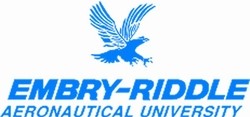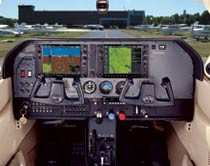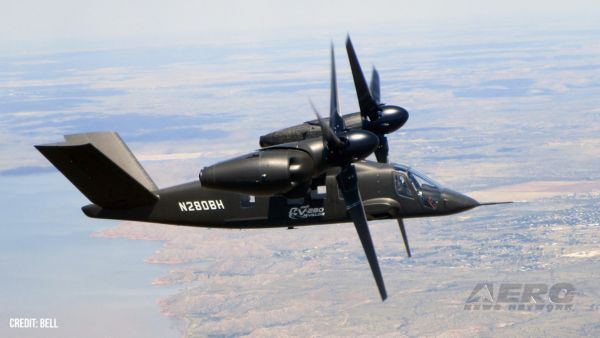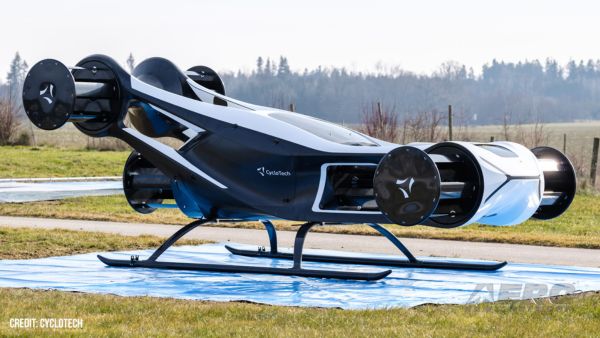Sun, Feb 05, 2006
 Embry-Riddle Aeronautical University
has purchased 16 high-tech Cessna 172 aircraft equipped with the
Garmin G-1000 glass cockpit suite and the industry-leading
automatic dependent surveillance broadcast (ADS-B) system. The
acquisition makes Embry-Riddle the nation’s only university
to combine the technically advanced aircraft cockpit suite and the
ADS-B collision-avoidance system in its training fleet.
Embry-Riddle Aeronautical University
has purchased 16 high-tech Cessna 172 aircraft equipped with the
Garmin G-1000 glass cockpit suite and the industry-leading
automatic dependent surveillance broadcast (ADS-B) system. The
acquisition makes Embry-Riddle the nation’s only university
to combine the technically advanced aircraft cockpit suite and the
ADS-B collision-avoidance system in its training fleet.
The large order also ensures that all students in
Embry-Riddle’s flight program will be able to pilot these
advanced aircraft during their flight training.
Embry-Riddle installed the FAA-standard ADS-B
collision-avoidance system in its fleet in 2003 because it provides
the extra margin of safety required for professional flight
training. A large multifunction panel in the aircraft’s
cockpit gives flight instructors and students real-time information
on potential air traffic threats.
“We believe the Cessna 172 equipped with both the glass
cockpit and ADS-B is the safest, most reliable, and most economical
way to teach advanced flight technology,” says Frank Ayers,
chair of the flight department at the university’s Daytona
Beach, Fla., campus.

The university is also adding the Garmin G-1000 glass cockpit to
its fleet of Frasca level-6 flight training devices to allow for a
more seamless transition between flight simulation and flight
training in its aircraft.
“This combination of glass cockpit simulation, on-board
collision avoidance, and technically advanced aircraft sets the
standard for collegiate aviation,” says Tim Brady, dean of
the College of Aviation at the campus.
Many of the new planes will be equipped with autopilots in order
to conduct special training in “technically advanced
aircraft,” a designation under the FAA Industry Training
Standards (FITS) program developed by Embry-Riddle researchers with
the aviation industry and other aviation-oriented academic
institutions. The FITS program creates scenario-based curriculums
aimed at preparing pilots to fly automated, high-performance
aircraft. Cessna Aircraft has adopted the FITS curriculums for its
own pilot-training program.
More News
Flight Recorder A general term applied to any instrument or device that records information about the performance of an aircraft in flight or about conditions encountered in flight>[...]
“We have the engine design; we have the integration plans for the launch airframe; we have the solutions to provide the hydrogen fuel; and we have the customers wanting to op>[...]
From 2024 (YouTube Edition): Innovative Pitch Control Eliminates Runway Accidents Aero-News Network’s Rex Alexander spoke with Herbie Lewis of ELA Aviación, who discus>[...]
Also: Tentative AirVenture Airshow Lineup, Supersonic Flight Regs, Private Pilot Oral Exam Guide, Boeing Deal The sport aircraft business can be a tough one... especially when Moth>[...]
Klyde Has No Patience... FMI: www.klydemorris.com>[...]
 ANN's Daily Aero-Term (05.18.25): Flight Recorder
ANN's Daily Aero-Term (05.18.25): Flight Recorder Aero-News: Quote of the Day (05.18.25)
Aero-News: Quote of the Day (05.18.25) Classic Aero-TV: ELA Aviation Sports New Vertical Takeoff Gyroplane
Classic Aero-TV: ELA Aviation Sports New Vertical Takeoff Gyroplane Airborne 05.19.25: Kolb v Tornados, Philippine Mars, Blackhawk Antler Theft
Airborne 05.19.25: Kolb v Tornados, Philippine Mars, Blackhawk Antler Theft Klyde Morris (05.16.25)
Klyde Morris (05.16.25)




